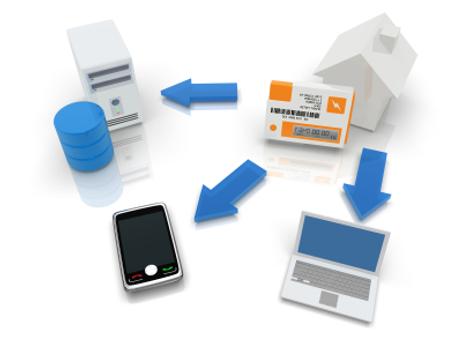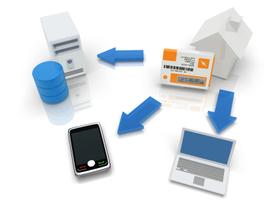Our nation’s energy delivery system is undergoing a significant transformation, and soon, the “smart grid” will replace the electric system of yesteryear.
The grid is deemed “smart” because it can route power according to specific needs and conditions, which is a sharp contrast to today’s grid, which merely “broadcasts” power from central generators. The smart grid is more reliable, transparent, cost-effective, and energy-effective than the current infrastructure, and the system is how America plans to manage its future energy independence, emergency resilience, and ability to generate clean power.
This video explains smart grid technology.
Under the Obama Administration, along with the Federal Smart Grid Task Force established through the Energy Independence and Security Act of 2007, the smart grid will soon become a reality. Areas around the country, such as Southern California and Cincinnati, have already begun installing smart meters to create a national system.
The Smart Grid: Smart Career Choices
The Department of Energy’s Grid 2030 Vision plans to modernize and revolutionize the electric system within ten years. The changes will impact every mile of the electricity system, reaching every consumer and business. Clearly, a change of this magnitude will cost billions of dollars and create “green collar” job opportunities for many individuals.
In fact, according to KEMA, the leading authority in energy consulting, in the next four years alone, the $16 billion earmarked for intelligent grid funding incentives will directly create 280,000 jobs in deploying the new grid.
This video takes another look at innovative grid technology.
The future of the smart grid will undoubtedly call for a wide range of professionals, and given its infancy, competition for jobs is limited. Savvy individuals interested in capitalizing on the smart grid movement can start training at local community colleges.
Securing a Smart Grid Degree
Often the pioneer of training for new industries, community colleges already offer programs and degrees in the smart grid.
Cincinnati State Technical and Community College
Beginning in the fall of 2010, Cincinnati State Technical and Community College students can work towards an associate’s smart grid degree. The coursework will combine traditional engineering technology classes with specialized smart grid topics like control systems, distribution, transmission, and instrumentation.
The major will specifically train students for the smart grid's short-term and long-term needs. In the immediate future, graduates of the program can become technicians who install the new meters. For long-term career prospects, students can become specialists who maintain the intelligent grid and manage the distribution and transmission of energy.
In expounding upon the major, Mark Wyatt, the vice president of smart grid and energy systems for Duke Energy in Cincinnati, stated, “Having a major devoted to understanding how this technology integrates with today’s grid is an important first step in preparing tomorrow’s energy professionals.”
In this video, Scientific American explains the smart grid technologies.
Other Community Colleges
While Cincinnati State Technical and Community College is the first campus to officially offer a smart grid major, many community colleges are quickly following suit. In fact, community colleges are lining up to secure a portion of the $40 million of federal funds earmarked explicitly for developing training curricula and programs for the smart grid.
Community colleges that have indicated their desire to create a specialized smart grid curriculum include:
- Metropolitan Community College in Kansas City, Kansas
- Lansing Community College in Lansing, Michigan
Alternative Smart Programs to Consider
If your local community college does not offer a smart grid major, you can still take measures to prepare yourself for the industry. Other programs relevant to smart grid careers include:
- Electrical technology
- Electronics
- Power line technology
- Solar energy
- Wind energy
- Wind turbine
- Electrical engineering
Alternative energy programs are an excellent entry point into the industry, providing training and work experience that can easily transition into smart grid careers. Indeed, the demand for workers trained in alternative energy management exists. For example, George Berghorn, the director of Lansing Community College’s environment, design, and building technologies department, stated that “close to 100%” of his alternative energy graduates have already found jobs working in energy efficiency consulting and auditing.
In the next ten years, the smart grid will reach every household and business – while simultaneously creating hundreds of thousands of jobs. Watch your local community college for new alternative energy and smart grid programs that can prepare you for the lucrative green-collar jobs of the future.
Questions? Contact us on Facebook. @communitycollegereview















